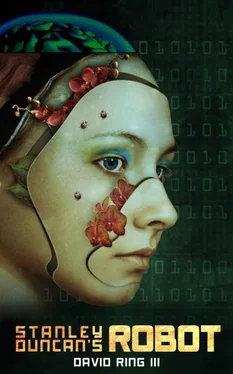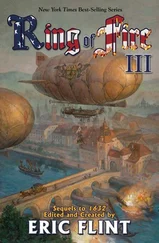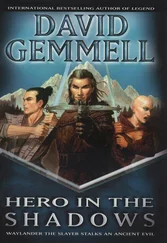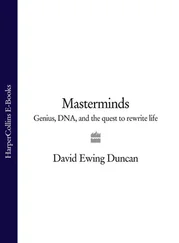David Ring III
STANLEY DUNCAN’S ROBOT
Genesis
For
Dad
Thank you for the nearly two decades of space I needed to heal. I know it wasn’t easy for you.
The human race might easily permit itself to drift into a position of such dependence on the machines that it would have no practical choice but to accept all of the machines’ decisions. As society and the problems that face it become more and more complex and machines become more and more intelligent, people will let machines make more of their decisions for them, simply because machine-made decisions will bring better results than man-made ones. Eventually a stage may be reached at which the decisions necessary to keep the system running will be so complex that human beings will be incapable of making them intelligently. At that stage the machines will be in effective control.
— Ted Kaczynski
No work is ever my own. I have greatly benefited from numerous people, both directly and indirectly. I’d like to name a few of them — including myself. I’ve grown greatly over the five years since beginning this book, and both it and I have undergone many changes. I salute this progress, accepting that a book is never finished — only abandoned. So, I humbly give this unfinished book to the world with great appreciation for the journey it has taken me on.
Key-Bangers Bangkok and its members, including Delia Ray, Paul, Daniel, Saranit Vongkiatkajorn, Stephen Shaiken. Kyla Coby, and Chanon Wong. Your insights and energy are greatly appreciated. I deeply appreciate having been welcomed into your community.
Frank Kresen. Your editing skills continue to humble and inspire me. It feels like such an incredible gift every time I work with you.
Michelle Dunbar, Melissa Leibfritz, and Amanda Ann Larson. The direction you gave me in the early drafts of the novel completely reshaped this book and my ability as a writer. Thank you.
Suzanne Richeson, the president of my fan club. Thank you for your support and friendship.
Mom, Meredith, Marisa, and Kendra — I’ll always appreciate you even when the words go unspoken.
For all my friends — thank you for making this life more beautiful.
It was with no great malice that Stanley Duncan, one of the world’s greatest coders, decided to write a program that would eventually threaten the extinction of the human race. Disfigured hands raced across the keyboard, finishing the first line despite the unwavering concerns blaring in the back of his mind. These actions would not only jeopardize the world, as he postulated, but would compel a battle for the most precious thing he possessed — his soul.
Stanley had worked on numerous AI projects before, contributing heavily to the Fermi fleet, whose algorithms made it possible to revolutionize the transportation industry with autonomous cars, and creating a one-of-a-kind, nearly indestructible android security guard — he felt sorry for whoever broke into that billionaire’s house.
It was a combination of expertise and unwavering obsession that pushed forward his newest project, artificial general intelligence, allowing him to move on to the next stage in less than one year. The greatest gift he could ask for was being shipped to him today.
Excitement pushed Stanley out of his warm twin bed well before the irritatingly slow sun could illuminate the vast orchard of abandoned buildings that stretched across the city. His finger quickly tapped against the flat, black knob of the straight key, filling the room with electronic beeping as he broadcast about the cyborg’s arrival through Morse Code. Darting to his computer as if he were late to one of his old classes, Stanley’s hands twitched, repeatedly refreshing the browser. The GPS feed monitoring the delivery was in real time, but it had been disabled during aerospace travel. There were still several hours until its scheduled delivery. He cracked a rare smile and walked toward the window, staring out at the world like a terrible ghost.
In the quiet suburbs of Marshfield, Massachusetts, a thick blanket of snow had accumulated over the patches of frozen marshes that surrounded the empty condo parking lot. Myriads of white crystals sparkled under the soft light of the slim, crescent moon. An equally uncountable multitude of stars twinkled above. The lulling whispers of the distant tide could be faintly heard. All seemed peaceful until beer bottles shattered across the street. Writhing in pain, a man lay face down in the liquor-store parking lot. Stanley drew the curtains, his misshapen nose poking through the narrow slit in the synthetic cloth. A chill ran down his spine. Even after two decades of self-imposed isolation, he still wanted nothing to do with the dying world outside.
Stanley had purchased the world’s newest technological creation, a lab-grown cyborg, model MK888. DNA research had advanced to the point where scientists could create the perfect flesh-and-bones shell to house the revolutionary dual-brain system. Though it was visually indistinguishable from a human, some believed it was no more alive than a primitive android. Others felt that cyborgs were in the same category of beings as humans. Sentient and conscious, they deserved the same rights and privileges as humankind. Stanley was in the latter camp.
His finger beat rapidly against the sill as he sat and waited by his window perch. With his elite skills as a programmer, Stanley believed he could create the world’s most advanced life form. Much of the work had been done already, but there was a year’s testing and evaluating to be done before his master algorithm would be perfected.
Within a few minutes, a police cruiser rolled into the parking lot. A huge officer cracked open one of the discarded beers and guzzled it down.
Stanley drove his finger hard into the window.
“Despicable.”
The big man looked up, scowling.
Stanley’s heart froze.
The man smashed the bottle against the ground, crossing the empty road toward the condo.
Stanley pulled out two cigarettes. “Oh, my God,” he said to himself. He stepped backward, stumbling over a chair and face-planting on the carpet as he tried to break his fall. Looking around frantically, he lit one of the now-crooked cigarettes and took a deep drag. His mind raced thinking about what weapon to grab, where to hide — as if he had forgotten about his secret entrance to the condo below or the dull voice telling him the officer wasn’t out to get him. That voice was crushed by the main condo door slamming shut. The condo shook, and the footsteps from the stairwell reverberated through the hall.
“Leticia, make him stop. Make him stop.” Stanley’s legs were barely working. He didn’t understand why he wasn’t escaping below.
“Command not understood. Analyzing.” He hadn’t expected his AI to do anything productive — not without being more explicit — but he was so scatterbrained, he could barely function.
The footfalls intensified like earthquakes before a volcanic eruption. Stanley focused, summoning his tremendous brainpower to think of a way to make the big, bad man go away. Scenarios flashed through his mind, but none of them were realistic. Like some caveman, he reached for the hardest object he could find — a pestle — and guarded the door. His body was shaking; his teeth were chattering.
“You like looking out the window, don’t you, Daffy Duncan?” boomed the man’s deep voice.
The words pissed Stanley off. It wasn’t because he was being made fun of — he was used to that. Stanley was as self-deprecating as they came. What really annoyed him was feeling so helpless. He had created machines that could destroy a small army, algorithms that powered the nation’s transportation, yet he was cowering behind a door with a pestle. And it wasn’t even a big pestle.
Читать дальше












